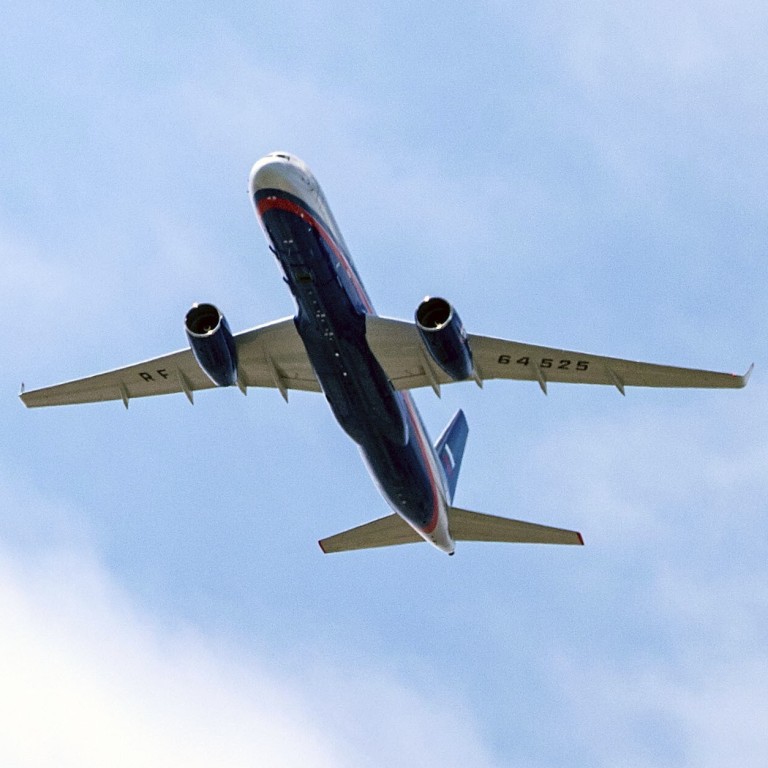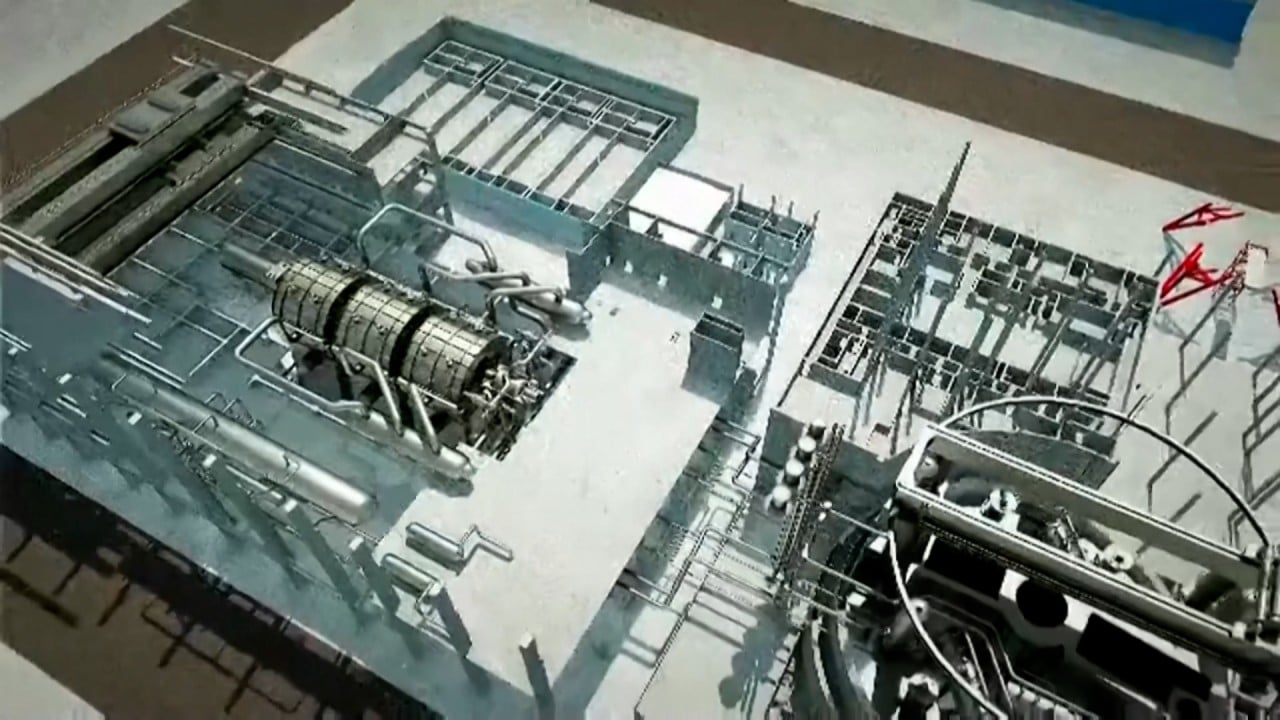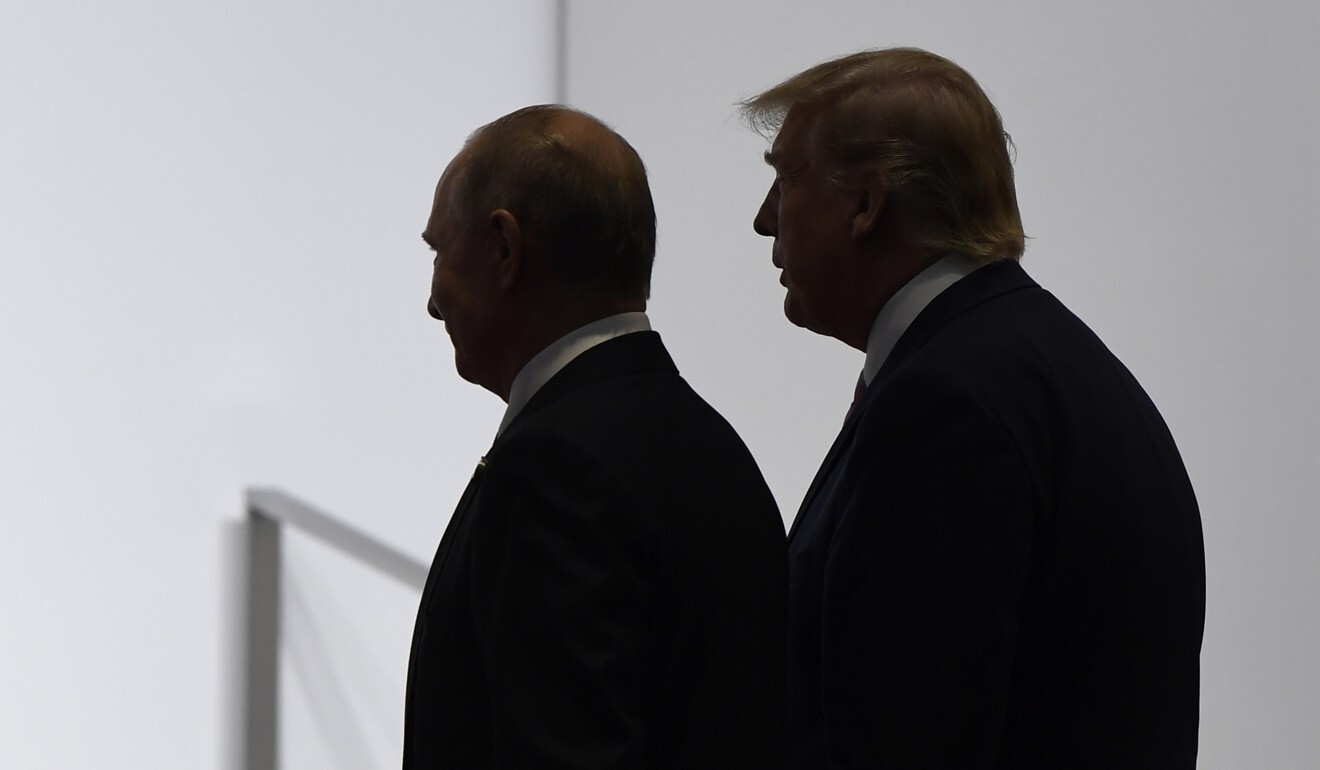
US tells Russia it won’t rejoin Open Skies arms control pact
- The move comes just weeks before Biden and Putin are to meet in Geneva, with ties between Washington and Moscow at the lowest point in decades
- The decision means only one major arms control treaty between the nuclear powers – the New START treaty – remains in place
The Biden administration informed Russia on Thursday that it will not rejoin a key arms control pact, even as the two sides prepare for a summit next month between their leaders.
US officials said Deputy Secretary of State Wendy Sherman told the Russians that the administration had decided not to re-enter the Open Skies Treaty, which had allowed surveillance flights over military facilities in both countries but that former president Donald Trump had withdrawn from.
Thursday’s decision means only one major arms control treaty between the nuclear powers – the New START treaty – remains in place. Trump had done nothing to extend New START, which would have expired earlier this year, but after taking office the Biden administration moved quickly to extend it for five years and opened a review into the Open Skies Treaty withdrawal.
The officials said the review had been completed and that Sherman had informed Russian Deputy Foreign Minister Sergei Ryabkov of the US decision not to return to Open Skies on Thursday. The officials were not authorised to discuss the matter publicly and spoke on condition of anonymity.

00:53
‘Activate it!’ Xi and Putin launch construction of new reactors in joint nuclear energy project
The Open Skies Treaty was intended to build trust between Russia and the West by allowing the accord’s more than three dozen signatories to conduct reconnaissance flights over each other’s territories to collect information about military forces and activities.
More than 1,500 flights have been conducted under the treaty since it took effect in 2002, aimed at fostering transparency and allowing for the monitoring of arms control and other agreements.
The Trump administration announced the US withdrawal from the treaty last year, and the lower house of Russia’s parliament voted last week to follow suit. But, until Thursday the two sides had said the treaty could still be salvaged with Russian officials saying they were willing to reconsider their withdrawal if the US did the same.
US pulling out of Open Skies treaty, as Trump blames Russia
Thursday’s notification, however, appears to put the final nail in the coffin of the treaty that was broadly supported by US allies in Europe and Democrats in Congress as a trust-building measure between the former Cold War adversaries.
In pulling out of the pact, Trump argued that Russian violations made it untenable for Washington to remain a party to the agreement. Washington completed its withdrawal from the treaty in November.
Moscow deplored the US withdrawal, warning that it will erode global security by making it more difficult for governments to interpret the intentions of other nations, particularly amid heightened Russia-West tensions over myriad other issues ranging from Ukraine to cyber malfeasance and the treatment of Russian opposition figure Alexei Navalny and his supporters.

Leading congressional Democrats and members of the European Union had urged the US to reconsider its exit and called on Russia to stay in the pact and lift flight restrictions, notably over its westernmost Kaliningrad region, which lies between Nato allies Lithuania and Poland.
Russia had insisted the restrictions on observation flights it imposed in the past were permissible under the treaty and noted that the US imposed more sweeping restrictions on observation flights over Alaska.
As a condition for staying in the pact after the US pull-out, Moscow had unsuccessfully pushed for guarantees from Nato allies that they would not hand over the data collected during their observation flights over Russia to the US.

